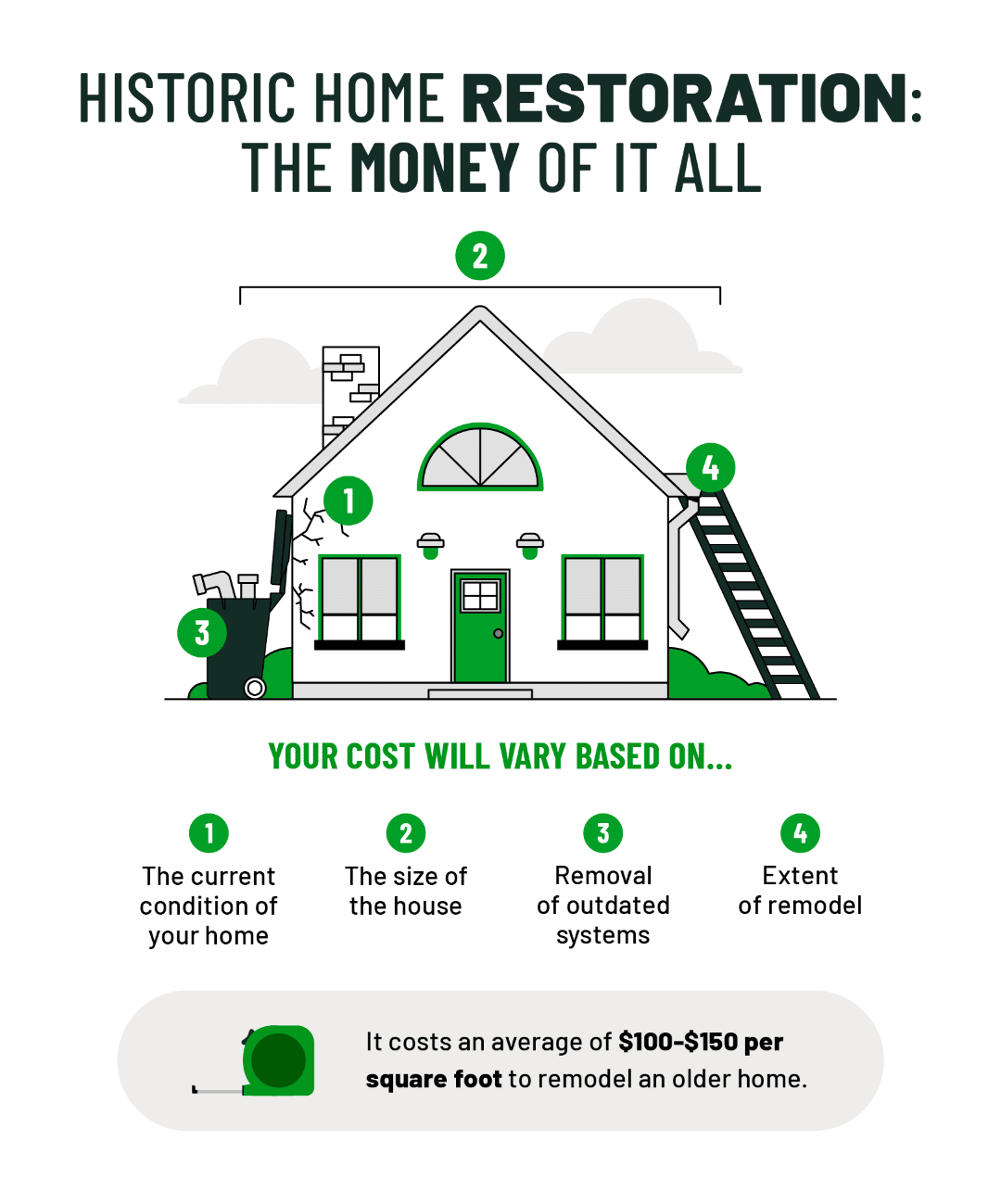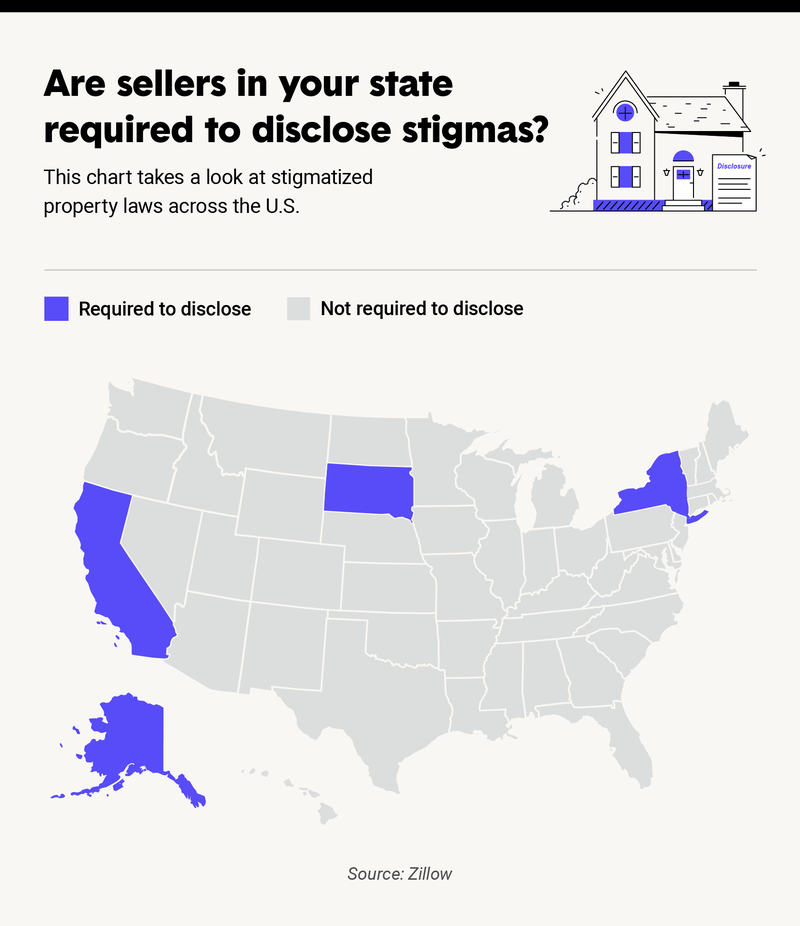Every Home is Different: Tips to Sell Historic, Luxury, HOA, or Stigmatized Homes

Homes are as unique as the people who live in them. As a real estate agent, you have likely witnessed firsthand how accurate that statement is. That’s why it’s important not only to develop relationships with the people you work with, but to become acquainted with their home as well. Understanding the differences and nuances of each home’s “personality” can help you to customize a more personal game plan for success.
Using The National Association of REALTORS® information on historic, luxury, HOAs, and stigmatized homes as a guideline, we’ll be breaking down and expanding in more detail on each type of home. What constitutes this kind of home, what are the benefits, what are some potential difficulties, and what do other sites have to say about the topic?
Historic Homes
Historic and vintage homes come in all shapes and sizes and learning about their past can be a fun adventure! According to Redfin, a “house needs to meet certain specifications to be classified as a historic home and is designated by the National Park Service.” It must meet “certain criteria: age, integrity, and significance.”
Highlighting the history of the home is, as expected, a great place to start when selling. Additionally, according to NAR, this is the perfect opportunity to “go beyond documents just about the house” and to really dig into the “town histories, wills and city directories.” This can even involve the help of experts such as “wood scientists, local historians and archivists, and The National Register of Historic Places.”
Another angle to focus on is the unique architectural qualities of historic homes. Is the home a “Federal style house [or] a Greek Revival house?” Maybe it’s a “Craftsman [or] Mid-century Modern” home. Understanding the styles that are prevalent in American historic homes will give you the vocabulary to share the uniqueness of the home. When renovating or working on upgrades, don’t go too modern and keep the oddities and eccentricities- that’s what makes it unique! All remodeling should be very carefully considered.
Another aspect to consider is the kind of buyer who may be interested in owning and preserving an historic home. Understanding and disclosing the house’s restrictions related to local historic preservation ordinances is extremely important. Redfin breaks down a list of other things to keep in mind when buying a historic home: the potential difficulty of “getting financing and insurance,” understanding any “historic preservation easements,” the potential perks you may qualify for when it comes to taxes, and the importance of home inspections and maintenance.
“Buying and preserving a historic home can be a rewarding experience,” but like any home, “it’s important to keep in mind the maintenance time and costs required to keep your home in the right condition.”
Luxury Homes
Selling luxury homes can be a very profitable, if lucrative, field. It takes some learning on the front end for any real estate agent. But what exactly is luxury real estate? Forbes broadly defines luxury real estate as “any property above grade to the rest of the market, with high-end finishes, architecture and property design.” So what does it take to break into the market?
It’s all about the buyers, and according to NAR, “familiarizing yourself with luxury trends, brands, and even hobbies will help set yourself up for success in the luxury sector.” Connecting with affluent clientele means a lot of networking. The Close states that “best way to meet high-net-worth clients is by doing something you already enjoy.” Maybe that’s horse races, vintage car shows, a polo club, or wine tastings. Whatever it is, make sure it’s something you actually enjoy spending your time on. No matter what the transaction looks like, being authentic is a major key to your success.
Taking your time to get to know the property and your buyer’s and seller’s motivations for owning the property is paramount in luxury real estate. This market is just as much about satisfying clients’ needs as it is about fulfilling their wants and desires. NAR mentions that the pandemic changed the scene and “desired amenities are not what they used to be.” People are more inclined to want homes with offices or pools for their perfect “staycation.”
At the end of the day, it all comes down to “asking the [buyer’s and seller’s] the right questions,” says Forbes, “and listening carefully to the stories.” The story that made the homeowner eager to buy in the first place will provide valuable insight into the property. This can play a huge part in marketing it to the right person. The best thing you can do is to pay attention and provide elite experience with a keen eye for detail.
Homeowners Associations (HOAs)
Some people love them, and some people hate them. For the right person, however, an HOA can be a huge asset. The tone to set here is total transparency- no one wants to end up in a situation they felt they weren’t properly prepared for. As a real estate agent, staying honest and upfront about the potential limitations and benefits of an HOA will serve to maintain your reputation as a trustworthy real estate professional down the road.
NAR defines an HOA, or Homeowners Association, as “group of homeowners in a defined area” that generate the funds for the “upkeep [of] the shared property, including landscaping and community areas.” These fees are typically due monthly from those who live there and vary greatly between locations and the services provided.
So what are the pros and cons? According to U.S. News & World Report, the answer to that question is entirely “subjective,” so it will depend on who you are talking to. Some of the most important things to consider and communicate with a potential buyer are the rules, the fees, and what they cover.
Most often, when a problem does arise, it is because “[the resident] is not aware of the covenant, and it’s brought to their attention because they’ve violated the covenant.” That means the time to review all association documents is imperative and typically “[HOAs] won’t release that document to [your client] directly.” As a real estate agent, being proactive with providing that information can make a huge difference in their long-term experience.
Stigmatized Homes
NAR defines a stigmatized home as “a property that has been psychologically impacted by an event which occurred, or was suspected to have occurred, on the property” that has “no physical impact of any kind” on the property. Events may include “murder, suicide, alleged hauntings, or notorious previous owner.”
Most states are not required to disclose this information, Washington state included, as it is not a material fact. According to the Washington State Legislature, a “material fact” is “information that substantially adversely affects the value of the property.”
What is not a material fact, then? The “fact or suspicion that the property, or any neighboring property, is or was the site of a murder, suicide or other death, rape or other sex crime, assault or other violent crime, robbery or burglary, illegal drug activity, gang-related activity, political or religious activity, or other act, occurrence, or use not adversely affecting the physical condition of or title to the property.” However, if you are selling a home that you know is stigmatized, it is best to familiarize yourself with state disclosure laws and potentially seek legal counsel to determine what you are and are not required to disclose.
Because this topic is so diverse and potentially very sensitive, every transaction is different and must be handled with care and thoughtfulness. Potential buyers may be willing to overlook the stigma for the benefit of negotiating a lower asking price. However, it is important to note that it may be difficult to resell the home later on. As with any home, it should be handled on a case-by-case basis. At the end of it all, adopting a motto of “always doing the right thing” is likely to be the most beneficial. As a real estate agent, you may not always be required to disclose certain information, but there will certainly be times when it’s important to do so anyways to maintain your reputation as an honest and ethical professional.








